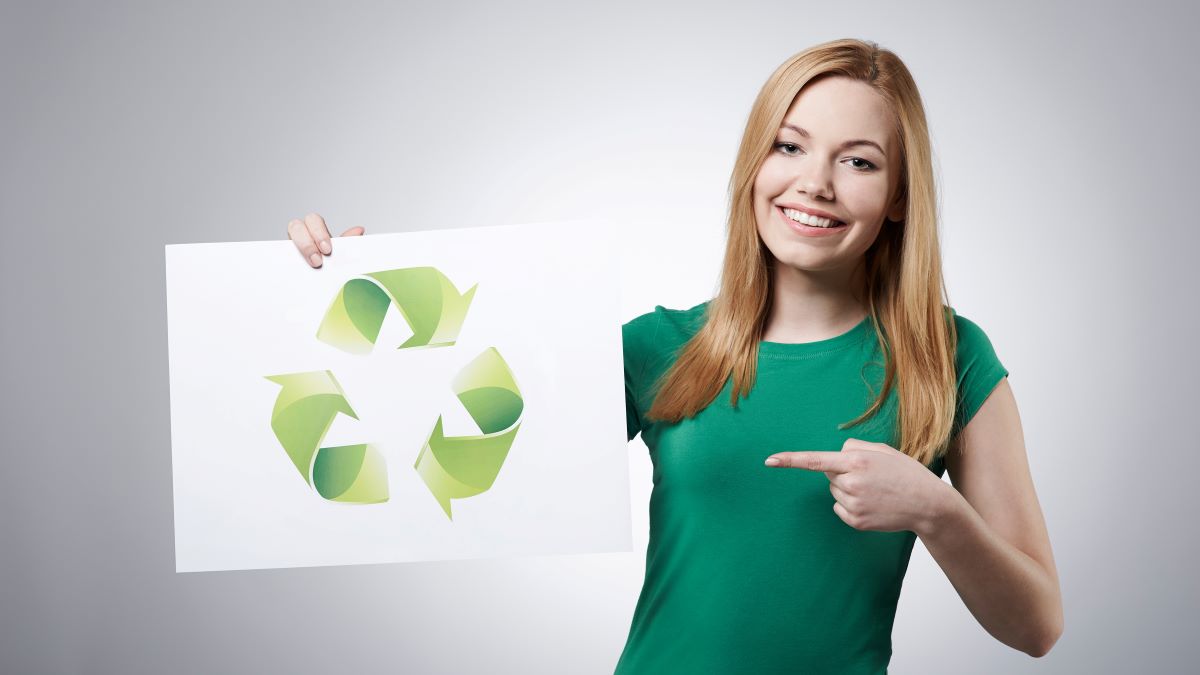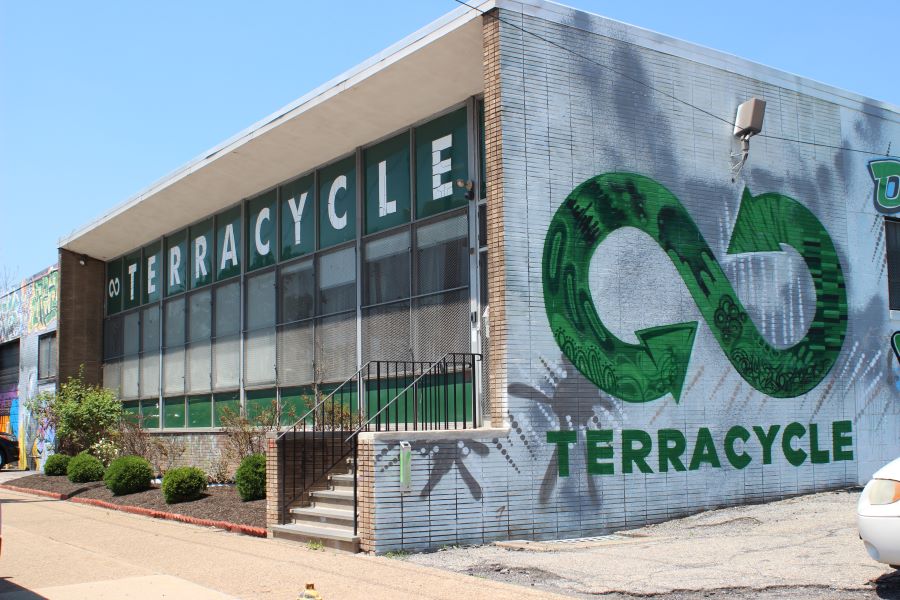Is TerraCycle Greenwashing the Waste Crisis?

Although our municipal recycling programs collect only a few types of products, almost everything — from diapers to cigarette butts — is technically recyclable. However, economics typically drive what these programs can actually recycle. If the cost of collecting and processing a waste item exceeds the value of the recovered materials, the recycler has no financial incentive to recycle it.
TerraCycle is a U.S.-based company that’s dedicated to eliminating waste. Through collaboration and innovation, it helps manufacturers find recycling or reuse solutions. The company may be best known for its recycling programs for hard-to-recycle consumer items such as disposable gloves, candy wrappers, and markers. It also has an affiliate nonprofit organization dedicated to removing trash from waterways and is creating a global system for reusable packaging.
However, a recent lawsuit and allegations of greenwashing have eroded some public confidence in TerraCycle. Is it a legitimate company, and is TerraCycle greenwashing its partner companies?
TerraCycle Lawsuit
The Last Beach Cleanup filed a lawsuit against TerraCycle in 2021, alleging the company misled customers of eight companies into thinking they could send back products for recycling for free. Unfortunately, only a certain number of customers could recycle these products for free, leaving others with the option to either pay to recycle the product or dispose of it themselves.
Due to the settlement terms, Coca-Cola, Procter & Gamble, Late July Snacks, Gerber, L’Oreal, Tom’s of Maine, Clorox, and Materne must now state on product labels if participation in the program is limited. Also, TerraCycle must implement a supply chain certification program to help earn customer trust. The company says it was already doing this internally.

How Does TerraCycle Work?
The company was founded in 2001 by Tom Szaky to fix the broken recycling system. Municipal recycling programs collect certain products but aren’t equipped to handle complex products, such as toothpaste tubes and makeup packaging. Recycling many of these products without an added incentive is not financially worthwhile.
So, TerraCycle partners with dozens of companies, including the eight mentioned in the lawsuit. Through these partnerships, it generates millions of dollars that it uses to fund recycling programs for these companies’ products or packaging. However, when the funding for a given product is exhausted, TerraCycle stops accepting new participants — even if customer demand for recycling is high.
Unfortunately, some consumers may have made purchasing decisions influenced by the availability of a free recycling program that wasn’t actually available to all customers. This leads to greenwashing, misleading customers into thinking a product is greener than it actually is through vague language and false or irrelevant claims.
TerraCycle also operates mail-in recycling programs for hard-to-recycle waste that consumers fund. These zero-waste boxes range in price from $42 to $199, and participants simply mail back packaging and goods.
Does TerraCycle Greenwash Companies?
The way we consume clothing, food, and most goods has changed dramatically over the last century. Previously, packaging was reusable, and products were made to last years or even decades. As a society, we want cheap, affordable, and shiny new things. However, this is fueling the waste crisis. The amount of plastic in the world’s oceans is a symptom of this consumption and the use of disposable packaging.
Many people believe corporations should have greater accountability because they manufacture these products and put them on store shelves. Likewise, many of the products they produce are hard to recycle, often containing several materials. As a result, a lot of plastic packaging ends up in landfills. Even if consumers clean plastic takeout boxes and clamshell containers and leave them in their recycling bins, many recycling programs can process only plastic bottles. The rest of the plastic waste ends up in landfills or incinerated.
One desirable aspect of the TerraCycle business model is that it includes corporations in creating recycling solutions. Currently, most of the burden of waste management falls on local governments. When companies are paying at least part of the recycling bill, they have an incentive to manufacture packaging and products that are easier to recycle and widely accepted by local recycling programs.
Unfortunately, the claims made against TerraCycle for greenwashing plague the waste management industry and are not unique to the company. TerraCycle has been criticized for making the companies they partner with seem greener than they are because recycling is merely a step in the right direction and not a true solution.
Yet, misinformation plagues the entire recycling industry and isn’t specific to TerraCycle. For example, many of the products on store shelves feature a recycling emblem, alerting customers that the product is recyclable. However, this can be misleading because local recycling programs can’t accept all types of products and materials.
![]()
Is TerraCycle Fixing a Broken Waste Management System?
Although recycling efforts can certainly be improved by making packaging easier to recycle, using renewable energy when processing materials, and ensuring that there is proper infrastructure in place to handle waste, recycling isn’t fundamentally sustainable in many applications. After all, in the EPA’s waste reduction pyramid, reuse is higher than recycling.
To address this, TerraCycle launched Loop, a global reuse platform for multiple stakeholders, including manufacturers, retailers, operational partners, and consumers. The goal is to create a circular supply chain for packaging that manufacturers refill and use repeatedly. Loop is now available in the United States, Canada, United Kingdom, France, Japan, and likely soon in Australia.
“Recycling — whether through TerraCycle or through municipal recycling — is only a Band-Aid,” said Tom Szaky, CEO of TerraCycle. “We believe reuse is the right answer and we’re continuing to pour all our profits into making Loop work. And frankly, if Loop really takes off, it will actually cannibalize our other business, kind of like Netflix’s streaming killed off their DVD business. That will be a good thing.”
Whether or not Loop is ultimately successful, TerraCycle is in a unique position to bring together various stakeholders to create reusable packaging solutions. The recent lawsuit and greenwashing claims have harmed TerraCycle’s reputation, but the company has achieved a lot.
It has won numerous entrepreneurship and sustainability awards and launched a nonprofit organization, TerraCycle Global Foundation, which has removed nearly 1 million pounds of waste from waterways. In 2020, it kept 3,600 tons of waste from landfills or incinerators across 22 countries.
In particular, the company’s ability to encourage collaboration among stakeholders to find solutions is especially promising. After all, the waste crisis needs holistic solutions that involve redesigning products, establishing new infrastructure to eliminate waste, and stakeholder collaboration. Although TerraCycle may have let consumers down somewhat in the past, the company is achieving results in an industry plagued with issues.
I still believe that Terracycle have made a huge difference,but it is up to us the customer as well to look for products that come in packaging that can be recycled. Glass is the best alternative for me. As I have said before I make all my own soap, shampoo and shower gel and the amount of plastic that I have reduced from our family has been amazing. I usually go to Camamilla and refill existing bottles for washing up liquid and general purpose cleaner. It really is quite amazing of how much I have reduced!
The blog song for today is: " Since you've been gone" by Rainbow
TTFN



No comments:
Post a Comment